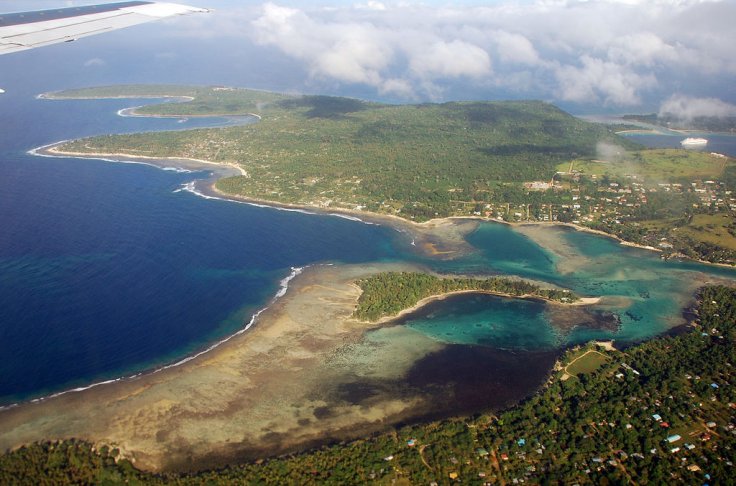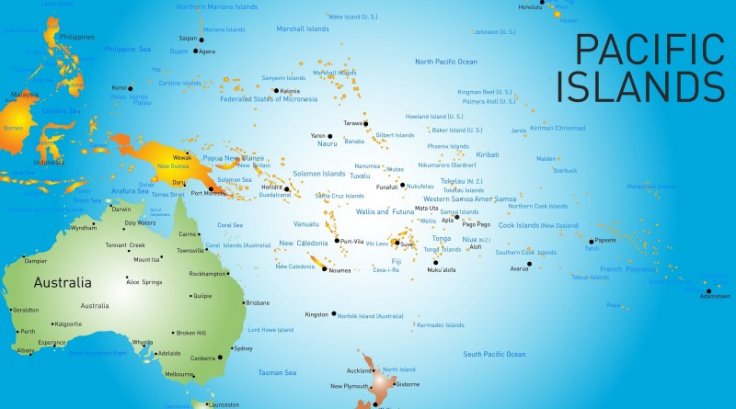Emerged as an outbreak in China, the novel Coronavirus soon spread across the world and turned out as a pandemic. Eight months after the World Health Organization (WHO) officially declared COVID-19 as a global health crisis, so far SARS-CoV-2 free places on earth now began noticing the virus' sudden appearance.
A Pacific island nation, Vanuatu about 1,200 miles northeast of Australia, on Wednesday, November 11 reported its first COVID-19 case, while two other so-far COVID-19 free -- Marshall Islands and the Solomon Islands -- also reported their first infection cases in October.
Most of the Pacific island countries closed their borders during the early days of the Coronavirus pandemic, when other parts of the world continued to report the surge of COVID-19, which as of now affected 50 million people around the globe, and killed over 1,294,000 individuals.
COVID-19 in Last Coronavirus-Free Nations

The health department of the Oceania country Vanuatu said a US returned 23-year-old man has tested positive. The government has suspended transport in and out of the capital city Port Vila, and also launched an operation to track and test all those people who might have come in contact with the Coronavirus-infected person. The country took swift action to make sure that they are safe from the pandemic, by closing the borders in March. But Vanuatu allowed its citizens and residents to return home.
The Marshall Islands reported the first cases in the last week of October among the people who have been working at a US military base and arrived from Hawaii. In the same month, the Solomon Islands also reported its first case and since then it has recorded over a dozen if COVID-19 cases among arrivals in quarantine.
However, there was no report of community spread and this week the Marshall Islands said the country has become Coronavirus-free. Meanwhile, in Samoa, three crew members of a ship that stopped in a port tested positive for COVID-19 and the workers who boarded the ship are now in isolation.
Concerns Emerge

Since these Pacific nations had time to prepare for such a sudden situation, it is possible that they can stop the spread of the novel Coronavirus. As per Lana Elliott, an expert on public health in the Pacific at the Queensland University of Technology, it is possible to contain Vanuatu's first case, as the government and the ministry of health have worked "diligently for the last number of months to prepare for this exact situation".
But the new case in the small Oceania nation has also triggered concerns. Colin Tukuitonga, an associate dean at the University of Auckland medical school said that Vanuatu is like many of the small islands in that region that is not capable of coping with even a few cases of Coronavirus infection.
"A handful of cases on a small island is going to overwhelm the health system; these are very small and not well-funded health systems. They often lack critical equipment, the critical skills," said Tukuitonga, who is former chief executive of New Zealand's Ministry of Pacific Island Affairs adding that contact tracing is the best way to prevent community transmission.
According to him, "That's the test. How quickly and how reliably the local authorities can identify the contacts. [and] It's not an easy job." But unlike other countries, contact tracing apps are not available in this Pacific Islands nation, and that would make the situation more challenging.
The good news is, as per Vanuatu's director of public health, Len Tarivonda, almost 200 people have been identified as potential contacts of the infected man. However, Tarivonda said, "We are concerned about that, especially since the staff who were working at the borders or the airline, they would have gone back to their families since last week."
However, while But Vanuatu's tourism-dependent economy is also expected to decline 8.3 percent this year, Tukuitonga, said that trying to keep the Coronavirus completely out of the country remains the right strategy for Vanuatu and many other countries in the Pacific. He said that "the primary aim of keeping it out or keeping it contained at the border is still the right one because if it gets into the community the islands will be simply overwhelmed."









